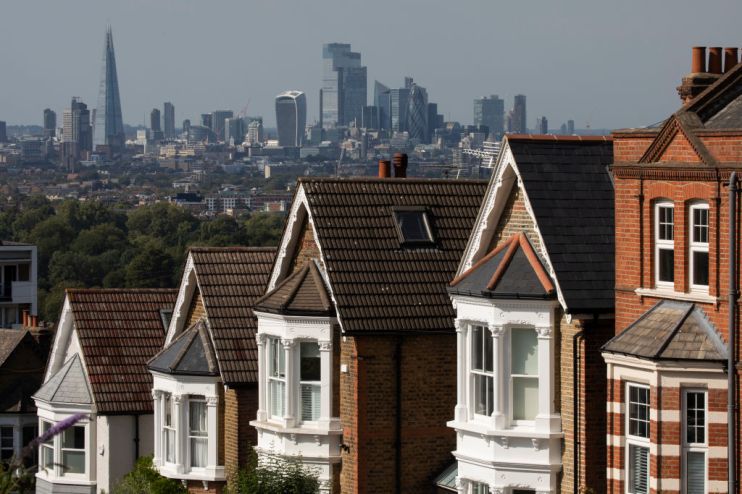Boost energy efficiency to tackle climate change, says Schneider Electric

There needs to be more of a focus on less exciting parts of the green transition such as energy efficiency, if countries are to meet their net zero goals, argued a leading analyst at energy specialist Schneider Electric.
Olivier Blum, executive vice president of energy management, told City A.M. enhancing the efficiency of existing buildings was essential to meeting net zero goals over the next three decades – with most Western countries reaffirming the target at COP 27 in Egypt this week.
He noted around half of the world’s buildings today will still exist in 2050, with the number rising to around 80 per cent across Western countries.
In his view, energy efficiency was essential to world’s fight against climate change and future green ambitions for a low-carbon future.
He argued it is also the fastest and most cost-effective way to react to an energy crisis, where digital technology can help eliminate considerable amounts of energy waste – saving energy, cost and emissions.
This had to be done in concert with more exciting parts of the green agenda such as new eco-friendly buildings or vast energy projects – which were also important to combatting global warming.
He believed governments “should pay more attention to cutting energy costs and insulation,” highlighting that older buildings were typically more lacking in sufficient energy insulation and technology.
Such measures include cavity wall insulation, energy efficient lighting, and smart meters which would all significantly boost the ability of residences and commercial buildings to contain heating.”
He said: “The past ten years we have seen a lot of focus on new buildings, when 90 per cent of the equation is existing buildings.”
Blum noted research from the International Energy Agency, detailing over 80 per cent of global carbon emissions can be related to energy.
Buildings alone are responsible for almost 40 per cent of global carbon emissions, clarifying the need to make them more efficient.
Blum believed that resolving this was essential to meeting net zero carbon emissions over the next three decades and to contain global temperature increases to well below two degrees from pre-industrial levels.
“There is a lot that can be done with technology, and the focus should now be on energy efficiency,” he argued.
Government scrambles to boost efficiency
Prime Minister Rishi Sunak attended COP 27 earlier this week, where he labelled Russia’s invasion of Ukraine as a galvanising moment for the West as it meets its energy goals.
He said: “Climate security goes hand in hand with energy security. Putin’s abhorrent war in Ukraine, and rising energy prices across the world are not a reason to go slow on climate change. They are a reason to act faster.”
However, Downing Street has formerly been criticised for lacking sufficient focus on energy efficiency – with households grappling with record energy bills this winter following Russia’s supply squeeze on Europe and resurgent post-pandemic demand for supplies.
Earlier this year, EDF published a study in partnership with Swift, revealing the average insulation age of UK homes was 46 years.

The energy giant surveyed 2,000 UK homeowners, revealing more than than half (58 per cent) the country’s households only meet the insulation standards of 1976 or older.
Less than a tenth of homes scrutinised by the firm have an insulation age of 20 years or younger.
The Government has invested £6.6bn in total this Parliament to improve energy efficiency across the households nationwide.
The has helped improve the efficiency of more homes across the country, with 46 per cent in England now holding the minimum target grade for energy performance certificates of C or better.
This is up from 14 per cent in 2010, however 19m homes in the UK still fall below the rating – meaning they use more energy than they reasonably need to because they are poorly insulated.
Meanwhile, installation rates have dropped sharply in the past decade from over two million homes per year to just tens of thousands after former Prime Minister David Cameron slashed previous efficiency schemes.
The Government last month announced £1.5bn in funding to boost energy efficiency and cut bills for low income households across the country.
The funding will see 130,000 households in England receive upgrades through the Government’s Help to Heat, which could save £400-700 a year on their energy bills.
The £1.5bn is being made available through the Social Housing Decarbonisation Fund and Home Upgrade Grant schemes – which are part of the £12bn overall programme.